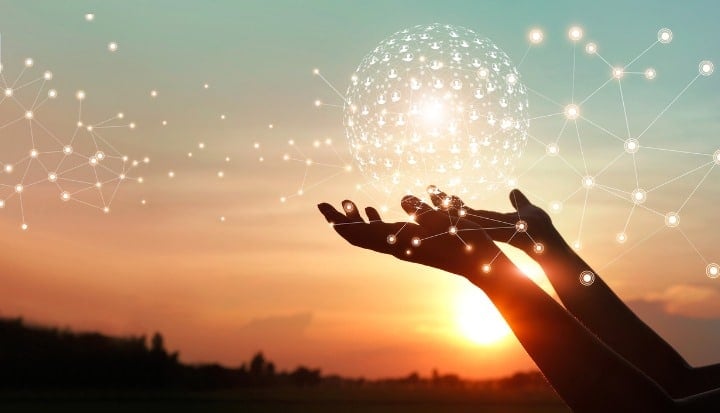COVID-19 may significantly hinder economic and social development across Africa. If the continent is to recover, then micro-entrepreneurs and SMEs will be the engine of growth. Local businesses will provide livelihoods for millions of people and goods and services to a growing consumer base. At the heart of this business-led recovery will be digital technology; a catalyst for inclusive growth.
But how do we enable African SMEs to become digitally enabled? Clearly the introduction of new technologies can improve SMEs’ productivity, growth and their customers’ quality of life. But the technology itself isn’t the final solution. Rather, it leads to another series of questions: What type of technologies would work here? What are the conditions needed to make technology sustainable and impactful? What skills are needed to take advantage of digital technologies?
We believe that when technology, resources and brain power are harnessed to achieve a mission, then this leads to innovation – technology that solves a problem. Microsoft 4Afrika and TRANSFORM both apply mission-led technologies to support SMEs and socially impactful enterprises.
Microsoft 4Afrika aims to create inclusive growth through the trinity of technology access, skills, and locally relevant innovation. First, Microsoft 4Afrika provides affordable access to the internet and digital technologies. Then, digital tools are tailored to the local context, making them relevant and complementary to people’s lives and the problems they face. This is crucial. Technology that works for businesses in London may not be the best solution for those in Lagos or Lusaka. Once access and suitability are secured, in the final step Microsoft 4Afrika provides training for local people to develop the skills required to make best use of the technology.
Microsoft’s approach complements that of TRANSFORM, a unique initiative between Unilever, the UK’s Department for International Development (DFID), and EY. TRANSFORM blends funding and expert support to deliver market-based solutions to the world’s biggest development challenges. Informed by Unilever’s experience, TRANSFORM treats digital solutions as cost-effective ways to reach disparate, overlooked communities with products, services and communications. As such, digital innovation is a necessary component of scaling both supply and the creation of demand.
TRANSFORM and Microsoft 4Afrika have been working together to help a million micro-entrepreneurs and SMEs. Take Project Rubicon, for example. Africa’s youth hold the promise of lifting themselves and their communities out of penury and into powerhouses of ideas that solve local challenges and improve livelihoods. Connectivity has great potential to provide economic and social benefits to low-income people across Africa. Coupled with the right online content, it can be used to support and deliver transformations in digital literacy, well-being and livelihoods.
As it stands, however, there is a lack of both affordable access to the internet, and appropriate and meaningful online media tailored to the needs of youth, especially young women aged 15-24. Interventions are required to make WiFi access more inclusive, and time spent online more productive.
To intervene, Unilever, in collaboration with Microsoft 4Afrika, internet service provider Mawingu Networks and interactive youth media provider Shujaaz Inc. joined together through Project Rubicon to develop and roll out a mass connectivity programme for low-income women and youth in rural Kenya, facilitating access to relevant content that will expose them to a web of relevant solutions and consequently improve their livelihoods. Microsoft 4Afrika had worked with both Mawingu Networks and Shuujaaz Inc. previously in developing their offerings using Microsoft technology.
Before the project, Mawingu was doing well with home WiFi, accessed by more affluent customers, but were experiencing low levels of demand for public WiFi hotspots that were affordable for low-income customers. Women only represented around a third of users, and 59% of Mawingu’s data was used for males’ gaming and recreational activities.
The two multinationals worked with Mawingu and Shujaaz to design and implement an intervention where young people were invited to offline events that signposted useful online content concerning improving their livelihoods, leveraging the Unilever network of dukas (informal shopkeepers), which are more accessible to women. Shujaaz had a key role in designing entertainment-led content that appeals to and benefits low-income women and youths, content that is relevant to their health, well-being and employment. Mawingu then de-risked access to this content through free data bundles before re-introducing charges for data later on.
The results were spectacular. Low-income young men and women now realised that going online would enable them to access content that could improve their lives, and the initial exploration was free. Following the reintroduction of charging, user retention is still five times the initial levels and the gender split among the young target group is close to 50:50. Furthermore, revenues have increased by so much that Mawingu has cut its prices by 60%, making its WiFi even more accessible to low-income Kenyans. The programme directly enhances the use of technology to promote empowerment of women and enhance youth employability.
Project Rubicon also includes the Sustain Technology Platform, developed with Microsoft. This platform creates relevant software solutions and allows partner organisations to securely share personal and business-sensitive data using Microsoft’s Azure Cloud technology. This is a critical tool for collaboration and facilitates swift and secure scaling. Microsoft’s Kaizala communications platform is also used in the project to enable local networks to form and interact.
Project Rubicon demonstrates how powerful technology and collaboration can be to improve economic and social development in Africa. By identifying and bringing together a group of likeminded individuals, working towards the same goals, collaborations like these can create a far greater impact than the sum of their parts would. Looking ahead, collaborative approaches pioneered by TRANSFORM and Microsoft 4Afrika will help SMEs to expand and continue to contribute towards continent-wide growth in Africa.










